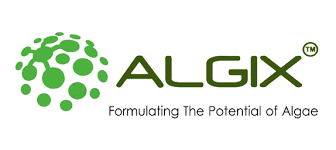August 20 2020
ABO Summit Spotlight Series
The Algae Biomass Summits second Spotlight Series: Algae Based Polymers was August 18, 2020.
Philip Pienkos was the session facilitator. Philip started Polaris Renewables in 2020 when he retired from NREL. He is also a founding member of the Algae Biomass Organization and the Algae Foundation. He has been named in Biofuels Digest’s list of the top 100 people in biofuels.
The virtual summit allows for greater reach to the global algae community.
“We’re seen several waves of product development from algae. Starting with spirulina, and more recently with biofuels, cosmetics, health products, human and animal food, pigments, and now polymers. Each of these has the chance to increase the scale for cultivation, lower the cost of production, lower our dependence on fossil fuels, and lower the barriers to acceptance and investment.
Polymers especially have the potential market size to drive cultivation scale to the point where biofuels could become a reality after so many year.” says Philip.
There were five excellent speakers in the spotlight session. Here is a summary one of the presentation, Ryan Hunt, of Algix.
Ryan has a passion for circular technologies including algae, photosynthesis, bioconversion, and biopolymer manufacturing.
Ryan is the co-founder of Algix. Algix creates sustainable technologies for environmental restoration and biomaterials through the Bloom brand. His team collaborates with Government and corporate partners for cleaning freshwater ecosystems and transforming municipal, industrial, and agricultural waste products into renewable plant, biomass and bio products.
The title of his presentation:
BLOOM is the brand created by Algix. This brand is used to jump-start the global algae supply chain. Helping to raise awareness of the benefits of algae for use in consumer products. Algix brings value to the market by cleaning water, cleaning air, and providing a circular methodology for absorbing and transforming pollution into products.
Algix decided to focus on targeting the fashion industry because people use their fashion as a statement for who they are, what they believe in, and the missions they support. Fashion is a gateway to inform the market about new technology and accelerate it’s adoption to the market.
The two initial product offering from Aligix is “Rise” materials and “Stride” materials. They’re theremo plastic compounds that are blends of algae and polymers, creating a compound that can be molded, foamed, or injectioned into different products such as shoes, or automotive materials, etc.
Ryan says this one of the first questions they receive. Algae blooms represent a threat to life on our planet. Algae is used to help restore nature through the process of environmental remediation. This happens by harvesting algae from the environment to pull nutrients out of the water and air, and help restore a balance back to the ecosystem. Algix is also using algae to protect nature. Algae technology is used to intercept pollution before it enters the environment to cause negative impacts. This is the transformation into a circular economy.
At BLOOM they are working to reverse the effects of air and water pollution, while also help to maintain and restore the ecosystems. This enables them to produce not only clean air and clean water, but also sustainable materials to be used in consumer products.
The BLOOM materials help displace traditional fossil fuel materials. They also help companies innovate and create more eco-conscience products that have a measurable positive impact.
Algae can have negative impacts on the planet. Environmental remediation is at the core of how BLOOM works.
Through the process the algae begins as a slurry, or algae paste. It’s then dewatered and dried into an algae powder. Finally thermoplastic co-processing is used to blend the algae with polymers to produce thermoplastic pellets. The pellets are the product! They are sold to supply chains for use and conversion into consumer products. Pretty incredible!
Ryan believes their product has had such rapid adoption is because of the BLOOM Certification. This certification is based on peer reviewed life-cycle assessment, and Global Recycling Standard audited through third parties. The certification will tell you the amount of clean water and clean air provided back to the environment through the use of algae biomass.
Learn about the products, brands, and where to find them by visiting BLOOM’s website. These products range from shoes, to surfboards, to backpacks, and many more. This shows the wide range of products that can be made using the algae material. They tell a story about sustainability and circularity.
Time to support the global algae supply chain!
The Algae Based Polymers speakers included:
Ryan Hunt, Algix – Upcycling Waste into Value: Building a Global Algae Supply Chain
Tao Dong, National Renewable Energy Laboratory – Non-isocyanate Polyurethane Produced from Microalgal Oil via a Carbon Sequestration Pathway
Michael Burkart, California Center for Algae Biotechnology at UCSD – Development of Renewable Polyurethanes from Algae Biomass
Babetta Marrone, Los Alamos National Laboratory – Biopolymer Production in Cyanobacteria Guided by Machine Learning
Scott Franklin, Checkerspot – Microalgae for the Production of Novel Biopolymer Feedstocks; Applications Development and Animation of Checkerspot™s technology through in-use application.
Visit the Algae Biomass Organization website for more information on the 2020 Algae Biomass Summit.
About Industrial Plankton:
Industrial Plankton designs and develops algae photobioreactors systems for commercial, research, and industrial scale algae production. To see our line of bioreactor technology please visit our products page.

